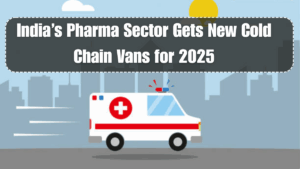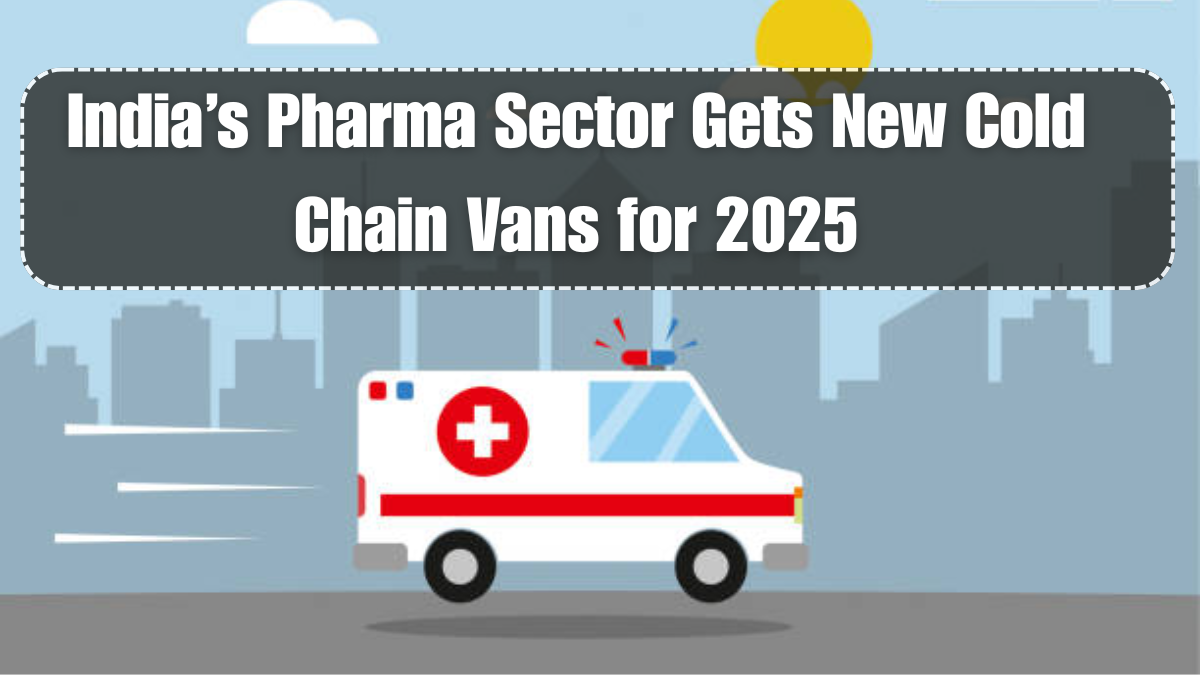India’s pharmaceutical and medical logistics sector has entered a new era in 2025 with the launch of an upgraded fleet of cold chain transport auto vehicles across major metros and high-demand zones. This bold initiative aims to secure the safe delivery of temperature-sensitive medicines, vaccines, and biologicals — a long-awaited solution to India’s fragmented pharmaceutical delivery system.
The Government of India, in partnership with leading logistics companies and pharma manufacturers, has deployed high-performance cold chain auto vehicles that meet global temperature compliance standards. These include refrigerated vans, reefer trucks, and climate-controlled mini vehicles suitable for last-mile connectivity.
This move is not just a response to increasing regulatory pressure but also a direct action to improve medicine delivery reliability, reduce spoilage, and extend the shelf life of essential drugs. With this cold chain transport auto upgrade, India’s healthcare infrastructure is taking a strong leap toward safer, smarter logistics.

Why India needed a cold chain transport auto upgrade
Pharmaceutical cold chain logistics in India has faced several long-standing challenges — high ambient temperatures, lack of reefer infrastructure, frequent breakdowns, and temperature instability. Until now, a majority of pharma transport relied on poorly maintained carriers or manual cooling methods that posed risks to medicine quality and patient safety.
Key issues that the cold chain transport auto upgrade is addressing include:
-
Inconsistent temperature control in long-haul shipments
-
Absence of GPS tracking and real-time temperature monitoring
-
Spoilage of vaccines, insulin, and biologics en route
-
Delays in medicine delivery to rural or remote zones
-
Lack of validated logistics for pandemic-response medications
The introduction of modern cold chain fleets is a game changer, providing 24×7 reliability across the pharma supply chain. For a country with rising chronic diseases and vaccine dependency, this upgrade comes at a crucial time.
What’s new in the 2025 cold chain auto fleet?
The cold chain transport auto upgrade in 2025 includes cutting-edge logistics vehicles with the following advanced features:
-
Temperature range from -20°C to +25°C maintained via electric or hybrid-powered refrigeration systems
-
Real-time GPS & temperature sensors for route optimization and compliance monitoring
-
Battery backup units for uninterrupted cooling during traffic or fuel shortages
-
Pre-calibrated pharma-grade insulation and WHO-compliant specifications
-
Multi-compartment vehicles allowing delivery of various drug types in a single run
-
Fleet automation integration with pharma warehouses and inventory systems
This innovation is designed to boost the quality of medicine delivery, especially for life-saving drugs such as insulin, vaccines, monoclonal antibodies, and pediatric medication. The addition of electric and hybrid reefer vans also supports India’s green transport goals.
Pharma sectors and zones leading the rollout
The first phase of the cold chain transport auto upgrade has been implemented in the following key regions:
-
Mumbai, Pune, and Hyderabad – pharma manufacturing hubs
-
Delhi NCR and Bengaluru – major distribution and export nodes
-
Tier 2 cities like Indore, Nagpur, and Kochi for last-mile outreach
-
Pilot programs in Northeast India and Kashmir for harsh climate resilience
Top pharmaceutical companies such as Cipla, Sun Pharma, Zydus, and Mankind are actively participating in this initiative. Simultaneously, third-party logistics (3PL) providers like Blue Dart MedExpress, Shadowfax Healthcare, and Delhivery Health are rapidly converting existing fleets into compliant cold chain auto formats.
This shift is expected to reduce medicine delivery delays by 30% and enhance shelf-life assurance for critical batches by up to 40%.
Impact on pharmacies, hospitals, and patients
The cold chain auto transformation isn’t just good for logistics — it benefits every stakeholder in the health ecosystem:
-
Retail pharmacies can now receive sensitive drugs with proper thermal packaging
-
Hospitals and clinics gain predictable delivery windows, reducing stockouts
-
Patients receive more reliable doses of refrigerated medicines, especially in areas with extreme weather conditions
-
Exporters can now guarantee quality and compliance for overseas consignments
-
Insurers and regulators** gain better visibility into the chain of custody
All of this contributes to reducing drug waste, increasing trust in generic medicine efficacy, and lowering healthcare costs in the long run.
FAQs
What is a cold chain vehicle?
A cold chain vehicle is a specially designed logistics vehicle that maintains a set temperature range during transport to ensure medicine safety.
Are these vehicles available in rural India?
Yes, as part of the 2025 rollout, the government is subsidizing cold chain vans for Tier 2 and rural districts.
Do they run on diesel or electricity?
New vehicles include electric, hybrid, and diesel versions depending on regional access to charging stations and operational needs.
Can small pharma companies use this service?
Yes, many logistics firms now offer cold chain auto rentals and delivery-as-a-service models for MSME pharma businesses.
Is this fleet monitored?
Yes, all vehicles are GPS-enabled and linked to centralized control rooms that monitor temperature and route data in real time.
Click here to know more.
